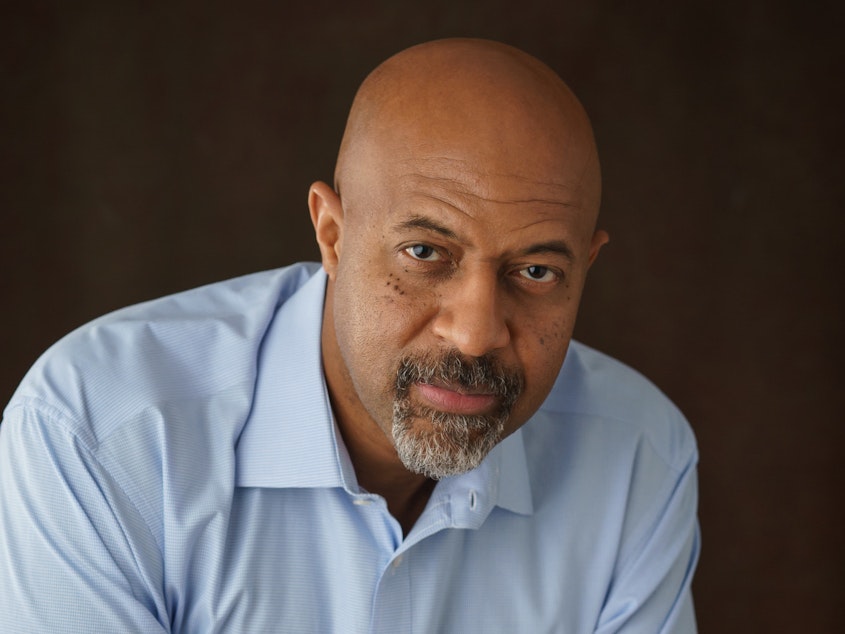Facebook Taps Former Obama Official As Vice President Of Civil Rights

Social media behemoth Facebook announced Monday it has created a new executive role at the company and that it will be filled by a veteran of the Obama administration.
Roy Austin Jr. has been named vice president of civil rights with the mandate to oversee Facebook's accountability on racial hatred and discrimination on its platform. He's slated to start Jan. 19.
Naming Austin to the position comes six months after a scathing independent audit found that the company had made "painful decisions [not to control content] with real world consequences that are serious setbacks for civil rights."
The auditors had several recommendations, such as calling on Facebook to do more to rein in hateful speech on its platform, and stricter penalties for users who post items that violate company standards.
The auditors also advised Facebook to create a position to lead the company's efforts on civil rights, even after acknowledging the company had taken several positive steps in that direction. Those included barring advertisers from using tools that target housing, employment and credit ads at individuals based on gender, age or ZIP code.
Sponsored
"I am excited to join Facebook at this moment when there is a national and global awakening happening around civil rights," Austin said in a statement.
"Technology plays a role in nearly every part of our lives, and it's important that it be used to overcome the historic discrimination and hate which so many underrepresented groups have faced, rather than to exacerbate it," he added.
Facebook said Austin will be based out of Washington, D.C.
He comes from the law firm Harris, Wiltshire & Grannis LLP, where he was a partner focusing on criminal defense and civil rights law. Earlier in his career, Austin held several positions within the U.S. Justice Department, including senior assistant U.S. attorney in the Civil Rights Unit of the Washington, D.C., U.S Attorney's office, and deputy assistant attorney general in the Justice Department's Civil Rights Division from 2010 to 2014.
After that Austin worked on the White House Domestic Policy Council in the Obama administration. He also worked on President Obama's Task Force on 21st Century Policing and was a member of Obama's My Brother's Keeper Task Force.
Sponsored
Laura Murphy, a former American Civil Liberties Union executive, who was hired by Facebook to lead a two-year investigation into the company's polices, applauded Austin's hire.
"The appointment of a Civil Rights Vice President is an historic, positive and timely milestone in the evolution of Facebook," Murphy said in a statement.
"Roy Austin is a great choice for this role; I worked with him extensively during his tenure at the White House. I urge Facebook to give him the latitude and resources to tackle the audit recommendations and any other civil rights issues that arise," she added.
Just how much "latitude" Austin ultimately gets remains to be seen.
Mark Zuckerberg, the company's co-founder, CEO and controlling shareholder, has the final say in any decision made at Facebook.
Sponsored
Pressure has been building for Facebook to implement changes to its platform following the killing of George Floyd by Minneapolis police on Memorial Day.
The audit was released in the immediate weeks following Floyd's killing, just as national protests calling for a reckoning on race, police brutality and social injustice were gaining momentum.
As NPR's Shannon Bond reported in July, the audit of Facebook came at the same time hundreds of companies pledged to pull advertising from the platform to protest its lax approach to policing harmful posts.
Bond also reported at the time that advocacy groups, including Color of Change, the NAACP and the Anti-Defamation League held a conference call with Facebook executives to press for change, but hung up disappointed with the social media network's response.
"They showed up to the meeting expecting an 'A' for attendance," Rashad Robinson, President of Color of Change told NPR at the time.
Sponsored
Editor's note: Facebook is among NPR's financial supporters. [Copyright 2021 NPR]

